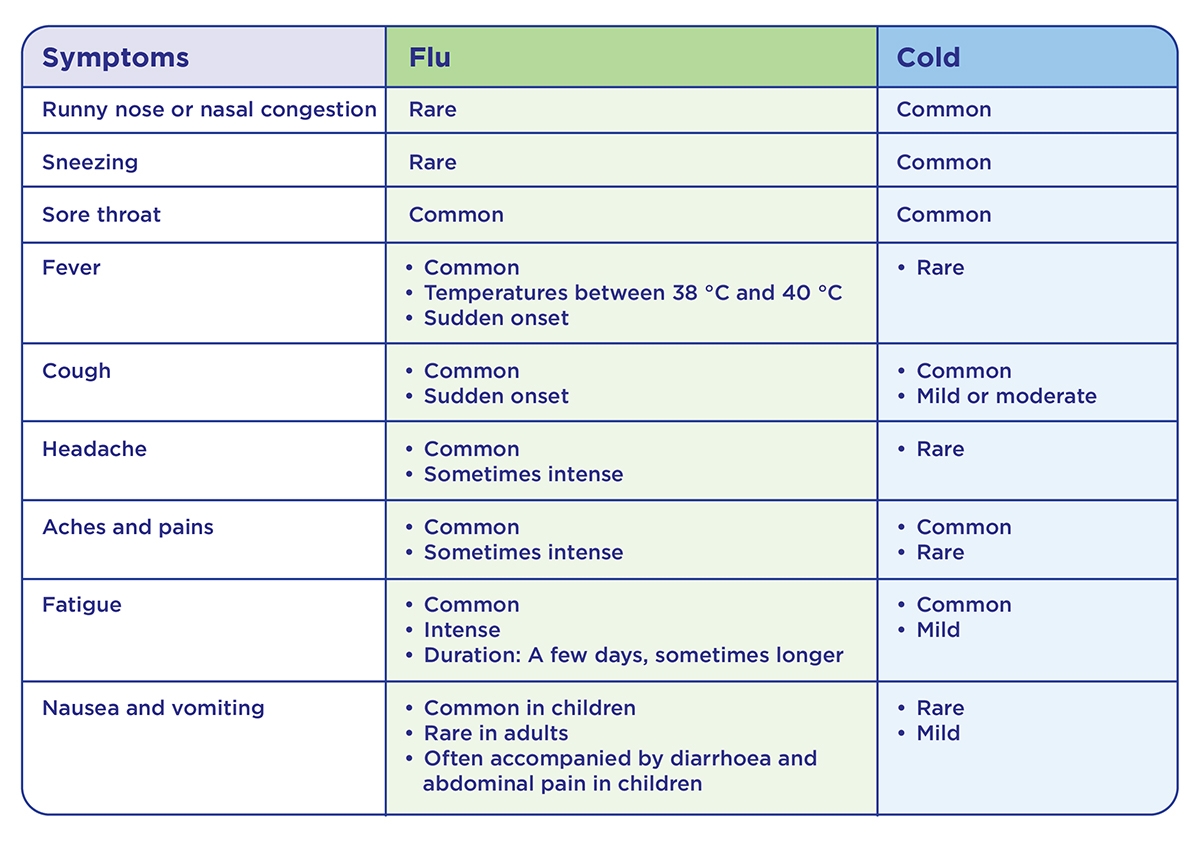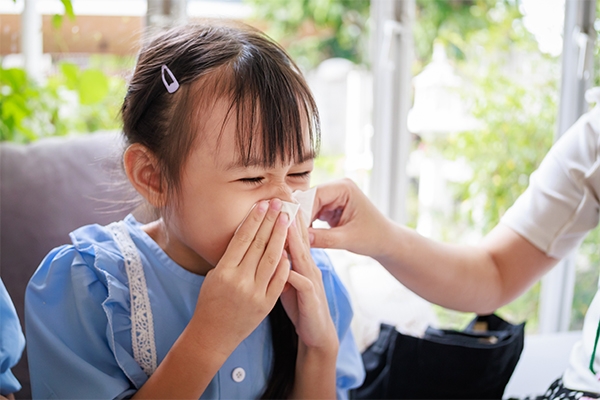Know the Difference Between Flu and Cold

You feel unwell. You've been sneezing all day. Your nose starts running. And today you develop a fever and chills. Are these symptoms of a common cold or a flu that needs to be treated more seriously?
Colds and flu are both upper respiratory tract infections, but they are both caused by different viruses. Because the symptoms are similar, many of us think they are the same.
Read More: Stay Healthy This Rainy Season
In fact, there are many different types of viruses that can cause the 'common cold,' and there are many variations of the flu virus.
In general, flu symptoms are more severe and can last longer than cold symptoms.
What are the symptoms?
Flu symptoms may include fever, cough, sore throat, runny or stuffy nose, muscle or body aches, headache, and tiredness (fatigue). Vomiting and diarrhea can also accompany the flu, although this is more common in children.
The table below helps you distinguish between cold and flu symptoms. Keep in mind that symptoms and their severity can vary with age and health conditions.

Treatment for colds and flu
Because viruses, colds and flu cannot be treated with antibiotics. These medications work against bacteria, not viruses.
If symptoms are mild, it is usually enough to get
- enough rest and sleep.
- Drink plenty of fluids, especially water.
- Eat soft foods if your throat feels sore.
You can take medicines sold in pharmacies to relieve symptoms like headaches, muscle aches, and fever. These medicines aim to relieve symptoms.
Sometimes, your doctor may prescribe antiviral drugs to speed recovery and reduce the severity of symptoms, especially if they are taken early in the infection.
Possible complications
A cold usually does not cause serious complications, but it can trigger a relapse in people with asthma.
Conversely, the flu can lead to serious complications, such as pneumonia or bacterial infections. Although most people recover within 1-2 weeks, the flu can severely impact vulnerable groups, such as the elderly, children, or people with chronic diseases.
Cold symptoms usually peak in 2-3 days, then gradually improve over a week or two.
Stop the spread of the virus

The flu is highly contagious. To avoid the spread of the flu or a cold, take the following steps:
- Cover your mouth with a tissue or a bent elbow when coughing or sneezing.
- Wash your hands with soap and water, especially after sneezing, blowing your nose, or coughing, and before handling food or drinks.
- Get vaccinated against influenza.
Flu vaccine and other prevention methods

Vaccination annually is the most effective way to protect yourself from the flu. The influenza vaccine helps the body recognize and fight the influenza virus.
This vaccine can be administered to anyone from six months to adulthood, including pregnant women, but only after consulting a doctor. However, if you have a fever, you should postpone the vaccine.
After vaccination, you may experience mild side effects, such as headaches or nausea. This is normal because it is a sign that the body is forming protection.
So, is the flu vaccine safe? Yes. The flu vaccine has been proven to be safe and effective. Its composition includes
- inactivated flu viruses;
- additional chemicals, such as aluminum salts (in safe amounts), to increase immunity;
- preservatives, such as formaldehyde and thimerosal, in safe levels;
- stabilizers, such as gelatin;
- leftover egg protein from the production process;
- antibiotics (not penicillin) to prevent bacterial contamination.
What if I’m allergic to eggs? According to allergy experts — including the American Academy of Allergy, Asthma, and Immunology—people with egg allergies can still receive the flu vaccine.
However, if you have a history of severe allergic reactions, you should get vaccinated under the supervision of a medical professional.
Does the flu vaccine cause autism? This is still a frequently asked question. However, the CDC confirms that scientific research has not found a link between vaccines and autism. So, don’t worry.
**
If you want to get a flu vaccine, visit the GWS Medika clinic, a health clinic in Jakarta. The GWS Medika clinic provides flu vaccines to protect you and your family from exposure to the flu virus.



